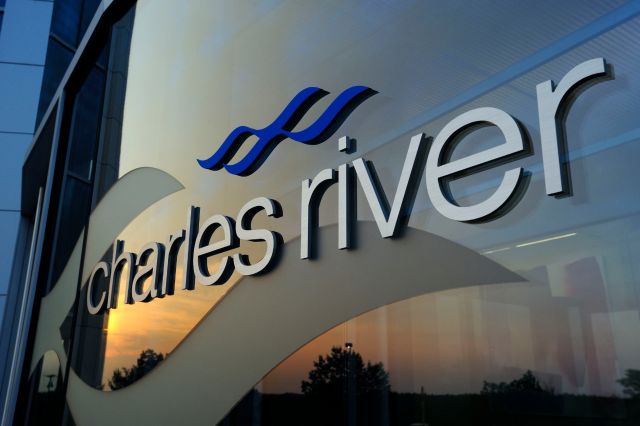| View printer-friendly version |
Charles River Introduces 'In Vitro' Test Product For the Detection of Harmful Contaminants in Drugs
The new test, called the Endosafe IPT test, complements Endosafe's highly successful LAL in vitro testing platform. Both the LAL and IPT tests are designed to detect pyrogens, which are microbial contaminants such as bacteria, viruses, fungi and parasites that cause fever and illness in people.
The new, patented test method is based on the human cytokine interleukin 1-beta, a signaling molecule produced by white blood cells. In the Endosafe IPT test, a drop of human blood is mixed in a small vial with a sample being tested. If pyrogens are present in the test sample, the white blood cells in the blood respond by producing interleukin 1-beta, which is then measured by performing a standard ELISA assay. In the human immune system, the role of interleukin 1-beta is to signal the brain to raise the body's temperature in an effort to fight an infection.
The Endosafe IPT test is currently being used in research laboratories at several pharmaceutical and biotechnology companies. The ability to detect pyrogens is critical in R&D settings where contaminated samples can skew test results and cause expensive delays in product development programs.
A validation program is underway to gain approval from European and U.S. regulatory agencies for the test's broader use in lot-release pyrogen testing. The FDA and European agencies require that all implantable medical devices and intravenous and injectable drugs - from IV fluids to flu shots - be tested for pyrogen contamination before they are shipped from manufacturing facilities for patient use.
While LAL is widely used in lot-release testing, there are several testing applications in which it is not effective. Those applications include the testing of products derived from human blood, such as plasma and serum albumin, and the new and growing class of drugs called "biologicals" - such as monoclonal antibodies and other therapeutic proteins that are grown in living cells.
The IPT test overcomes these limitations. It is the first in vitro test that is broadly effective in detecting pyrogens in virtually any therapeutic product - from traditional drugs, to blood products and biologicals, to materials used in medical devices.
The test's broad applications would address an estimated $50 million market for which there is no reliable in vitro method available for pyrogen detection.
Charles River's Chairman and CEO, James C. Foster, commented: "We are very pleased to bring this new technology to our worldwide customer base. The Endosafe IPT test represents our continuing effort to expand our suite of in vitro, or animal-alternative, testing technologies that complement our research models business. Charles River is the world leader in the field of LAL endotoxin detection, the first and still pre-eminent FDA-validated in vitro method. We are constantly seeking those technologies that represent both strong scientific utility and commercial promise."
Charles River Laboratories, based in Wilmington, Massachusetts, is a leading provider of critical research tools and integrated support services that enable innovative and efficient drug discovery and development. The Company is the global leader in providing the animal research models required in research and development for new drugs, devices and therapies. The Company also offers a broad and growing portfolio of biomedical products and services that enable customers to reduce cost, increase speed, and enhance productivity and effectiveness in drug discovery and development. Charles River's customer base spans over 50 countries, and includes all of the major pharmaceutical and biotechnology companies, as well as many leading hospitals and academic institutions. The Company operates 76 facilities in 16 countries worldwide.
Caution Concerning Forward-Looking Statements: This document includes certain "forward looking statements" within the meaning of the Private Securities Litigation Reform Act of 1995. These statements are based on management's current expectations, and involve a number of risks and uncertainties that could cause actual results to differ materially from those stated or implied by the forward looking statements, including acquisition integration risks, special interest groups, contaminations, industry trends, new displacement technologies, outsourcing trends, USDA and FDA regulation, changes in law, continued availability of products and supplies, personnel and control, and others that are described in more detail in the Risk Factors contained in the Company's most recent SEC filings. The Company disclaims any intent or obligation to update forward looking statements, and otherwise claims the safe harbor protections for forward looking statements afforded under The Private Securities Litigation Reform Act of 1995.
CONTACT:
Charles River Laboratories, Inc.
Christopher DiFrancesco, 978/658-6000, ext. 1508
Copyright (C) 2002 Business Wire. All rights reserved.

